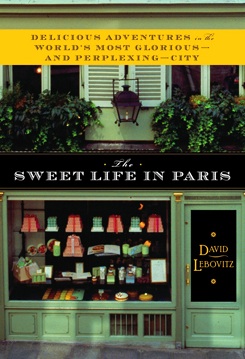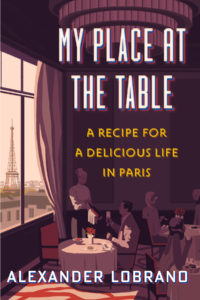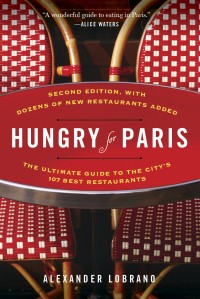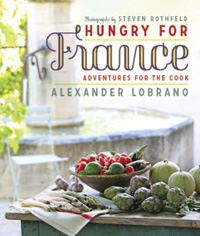Find a Restaurant
My New Book: My Place at the Table: A Recipe for a Delicious Life in Paris
Charming, gripping and often poignant, My Place at the Table is a coming-of-age story that vividly recounts how a timid boy from the suburbs of Connecticut became one of the most influential dining critics and food writers in France.
Publication date: June 1, 2021
Order your copy now:
Recent Posts
- You’re Invited to Join the Ultimate South of France Food-and-Wine Lovers Trip
- Prunier, Paris | The Rebirth of a Legendary Seafood House, A-
- Tekés, Paris | Vegetarian Cooking to Make You Green With Envy, B+
- Parcelles, Paris | The Guileless Charm of a Perfect Bistrot a Vins, A-/B+
- Granite, Paris | The Solid Talent of Chef Tom Meyer, A-
Get the Newsletter
Please sign up for my monthly newsletter to get the best of Paris, France and beyond, including insider's restaurant news and recommendations, hotel and book reviews, favorite food and wine discoveries, travel ideas, recipes and more.
Hungry for Paris, Second Edition
The Second Edition of this guidebook cum memoir of Parisian life reviews the city's 109 best restaurants, each of which is portrayed in savvy, fun, lively descriptions that are not only indispensable for finding a superb meal but a pleasure to read.
Hungry for France
An insider's culinary tour of some of the most alluring restaurants, inns, and food producers in France, with gorgeous photography and seventy-five recipes.
Twitter Feed
My New Book: My Place at the Table: A Recipe for a Delicious Life in Paris
Charming, gripping and often poignant, My Place at the Table is a coming-of-age story that vividly recounts how a timid boy from the suburbs of Connecticut became one of the most influential dining critics and food writers in France.
Publication date: June 1, 2021
Order your copy now:
Hungry for Paris, Second Edition
The Second Edition of this guidebook cum memoir of Parisian life reviews the city's 109 best restaurants, each of which is portrayed in savvy, fun, lively descriptions that are not only indispensable for finding a superb meal but a pleasure to read.
Hungry for France
An insider's culinary tour of some of the most alluring restaurants, inns, and food producers in France, with gorgeous photography and seventy-five recipes.
Find a Restaurant
Recent Entries
Copyright 2025, Alexander Lobrano. All rights reserved. Contact.





